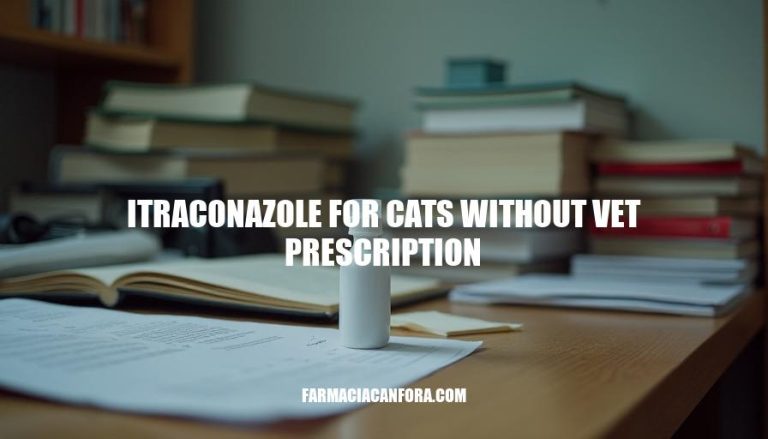


Using itraconazole for cats without a vet prescription is a topic that requires careful consideration. Itraconazole is an antifungal medication commonly used to treat infections like ringworm in cats. While it can be effective, it’s crucial to understand the risks and benefits. Without veterinary guidance, improper use can lead to serious side effects, including liver damage. Consulting a vet ensures the correct dosage and monitoring, safeguarding your cat’s health.
Itraconazole is a triazole antifungal medication used in veterinary medicine to treat various fungal infections. It is effective against skin and systemic fungal infections, such as dermatophytosis (ringworm), aspergillosis, cryptococcal meningitis, blastomycosis, coccidioidomycosis, sporotrichosis, and histoplasmosis.
In cats, itraconazole is particularly effective in treating fungal infections like cryptococcosis and dermatophyte infections. It works by inhibiting the synthesis of ergosterol, a vital component of fungal cell membranes, leading to cell death. This makes it a valuable tool in managing and curing fungal infections in feline patients.
Administering itraconazole to cats without a vet prescription can be dangerous for several reasons:
Incorrect Dosage: Without professional guidance, you might give an incorrect dosage, which can lead to either ineffective treatment or overdose. Overdosing can cause severe side effects like liver toxicity, vomiting, and loss of appetite.
Side Effects: Itraconazole can cause side effects such as vomiting, diarrhea, and loss of appetite. In some cases, it can lead to more severe issues like liver damage or hepatitis. Only a vet can monitor and manage these side effects properly.
Drug Interactions: Itraconazole can interact with other medications your cat might be taking, potentially leading to harmful effects. A vet can assess these risks and adjust treatments accordingly.
Underlying Conditions: Cats might have underlying health conditions that could be exacerbated by itraconazole. A vet can perform necessary tests to ensure the medication is safe for your cat.
Proper Diagnosis: Misdiagnosing the condition and using itraconazole inappropriately can worsen your cat’s health. Vets can accurately diagnose and prescribe the correct treatment.
Professional guidance ensures the safe and effective use of itraconazole, tailored to your cat’s specific needs. Always consult a vet before administering any medication to your pet.
Itraconazole is highly effective for treating fungal infections in cats, particularly ringworm caused by Microsporum canis. It works by inhibiting fungal cell wall synthesis, weakening the fungi. Key benefits include:
When used correctly, itraconazole can significantly improve a cat’s health and quality of life.
Obtaining and using itraconazole for cats without a veterinary prescription has significant legal and ethical implications:
It’s crucial to always consult a veterinarian before administering any medication to ensure the safety and well-being of your pet.
Using itraconazole for cats without a vet prescription is not recommended due to potential risks and side effects. Itraconazole is an effective antifungal medication, but improper use can lead to liver damage, drug interactions, and other health issues.
A veterinarian’s guidance ensures the correct dosage, monitoring, and management of side effects. Without veterinary oversight, owners may face legal liability, compromise their cat’s health, and breach professional integrity.
It’s essential to consult a vet before administering any medication to ensure your pet’s safety and well-being.